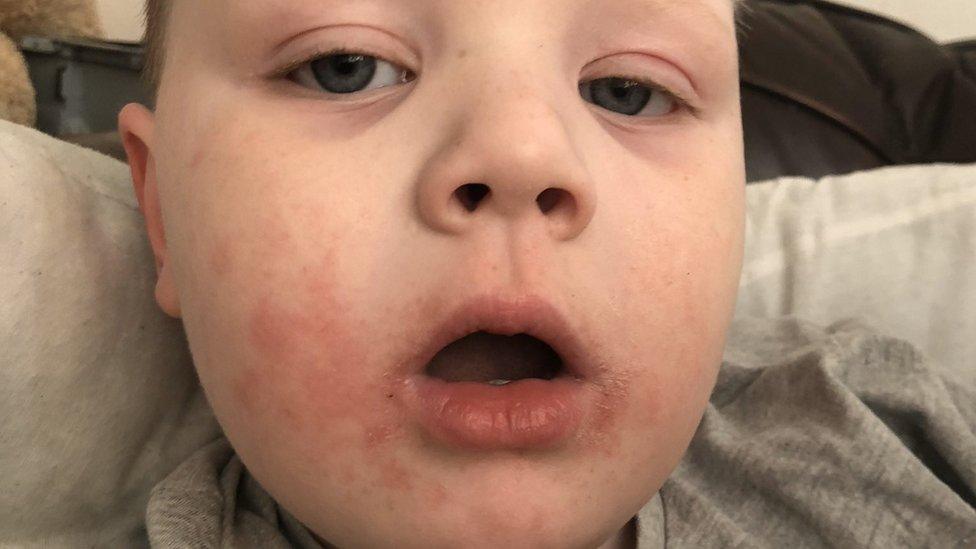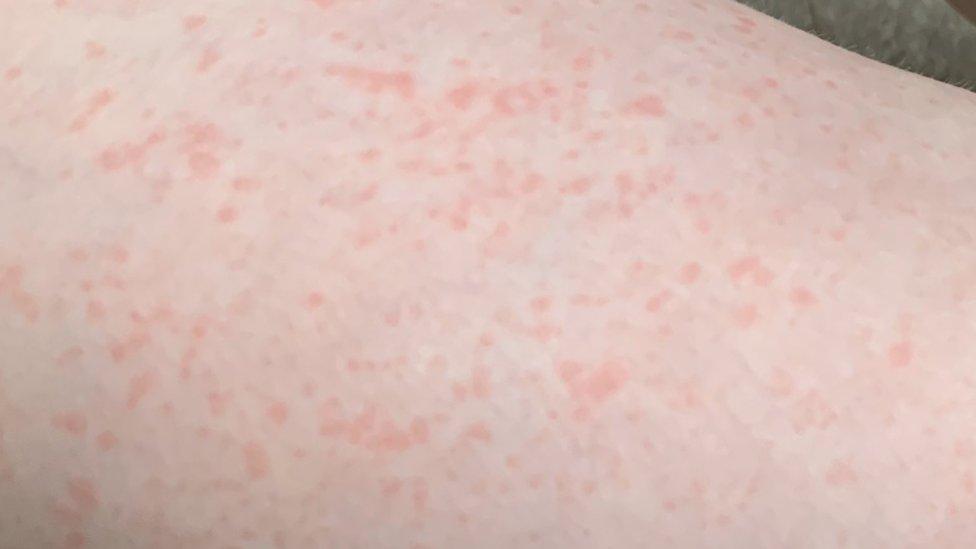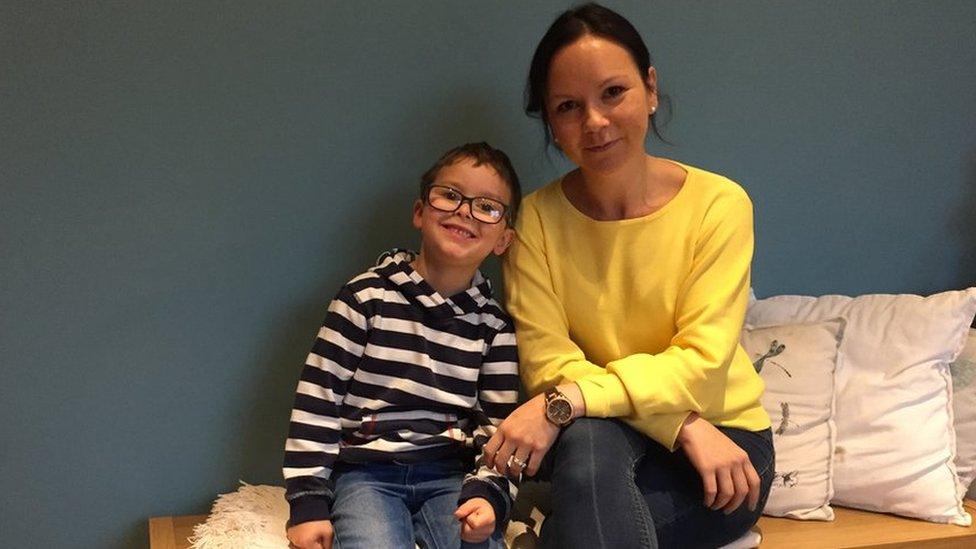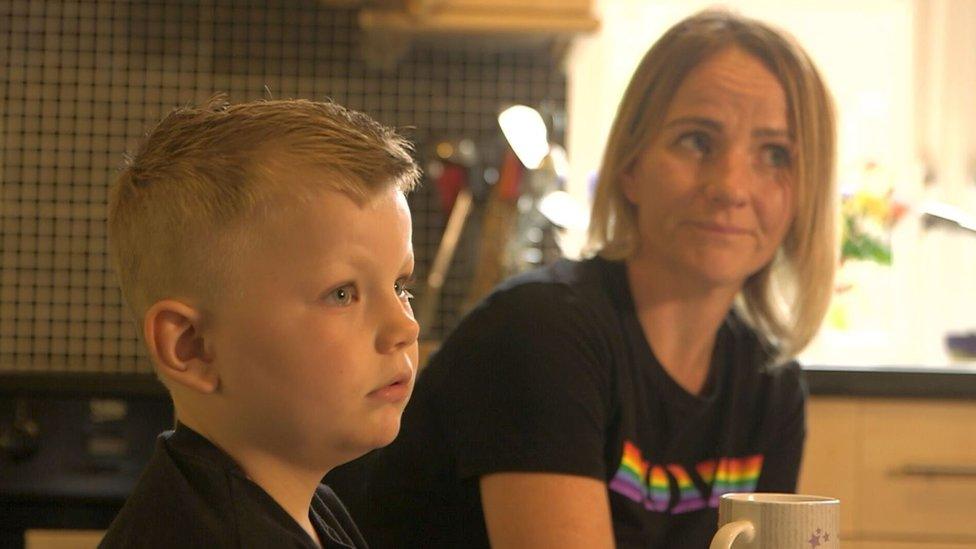Allergic reaction hospital admissions double in Wales in eight years
- Published
Archie can go into anaphylactic shock if touched by someone who has been eating peanuts
The number of people admitted to hospital for allergic reactions has doubled across Wales in eight years.
In 2010, 801 people sought treatment - up to 1,628, in 2018, figures from the health boards in Wales have shown.
Charlotte Murphy, the mother of Archie, seven, who has an egg and nut allergy, is campaigning for a change in how schools deal with allergies.
The Welsh Government said schools were given guidance and adrenaline auto-injectors could be kept on site.
But Ms Murphy, from Cardiff, said since September 2019 her son Archie has left school more than 60 times with "visible signs of having an allergic reaction" such as hives and rashes.
"I felt that somebody needed to be accountable for the actions school take, or the lack of actions that they take, when it comes to children with food allergies," she told Wales Live.
"I don't want my son to be an example of a tragedy."

Charlotte Murphy set up Archie's Allergies after her son was diagnosed with egg and nut allergies
Archie first showed an allergic reaction to eggs when he was a baby and his parents fed him scrambled eggs as part of weaning.
When he was four, he went into anaphylactic shock - an extreme reaction which is a medical emergency - after his cousin touched him after eating peanuts, prompting him being rushed to hospital.
He was subsequently diagnosed with his allergies and Ms Murphy has since set up a charity, Archie's Allergies, to help other families.
She said there were still times when Archie comes home from school showing signs of having had a reaction and has not been given medicine.
Common causes of severe allergic reactions include foods such as nuts, dairy products and shellfish but they can also be triggered by insect stings, medicines and pollen.

What does an allergic reaction look like?

Archie has been sent home from school more than 60 times in six months with reactions such as hives
Symptoms include:
Sneezing and a runny or blocked nose
Red, itchy, watery eyes
Wheezing and coughing
A red, itchy red rash
Swollen lips, tongue, eyes or face
Stomach pain and sickness or diarrhoea
Worsening of asthma or eczema symptoms
Most allergic reactions are mild, but occasionally a severe reaction called anaphylaxis or anaphylactic shock can occur which needs urgent treatment. These symptoms include:
Feeling lightheaded or faint
Breathing difficulties - such as fast, shallow breathing
Wheezing
A fast heartbeat
Clammy skin
Confusion and anxiety
Collapsing or losing consciousness
Source: NHS, external

Archie's arms can get covered in hives during a reaction

Dr Tariq El-Shanawany, consultant clinical immunologist at Cardiff and Vale health board, said: "We've been seeing an increase in rates of allergies for a large number of years.
"Urban environments have a higher rate of allergy than rural environments and there may be a role of reduction of infections in that - but of course that's good that we no longer see the rates of childhood deaths from infections that we used to.
"I think what we want to do is maintain the improvements that we have seen in public health and reduce the risk of allergies, so certainly being out and about in nature, in green spaces or out in the countryside would be beneficial for many reasons including reduction of risk of allergy."
Wales Live is on BBC One Wales on Wednesday at 22:30 GMT
- Published18 November 2018

- Published7 June 2019

- Published11 October 2019
